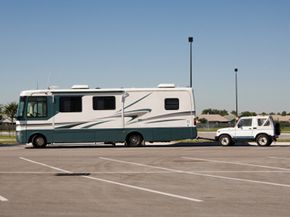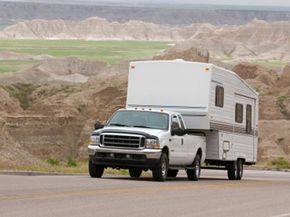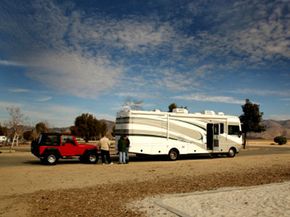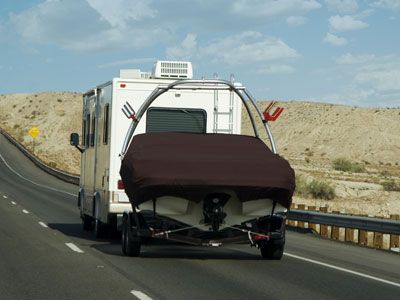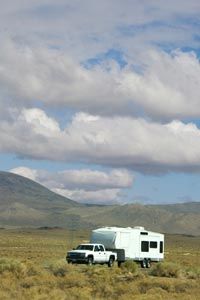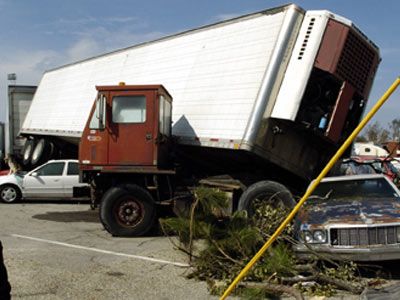In September of 2007, in the parking lot of a restaurant near Philadelphia, a driverless recreational vehicle (RV) with a trailer in tow somehow slipped out of gear and rolled into a nearby street. A Volkswagen Jetta, traveling down the road at approximately 35 mph (56 kilometers per hour), crossed the path of the RV and was struck. The car was extensively damaged and the driver was taken to the hospital but not seriously injured.
The RV had rolled out of the parking lot at a speed of only about 5 mph (8 kilometers per hour) when it struck the faster-moving Jetta. Police blamed the sheer weight of the RV-trailer combination for the damage. It's a pretty good bet that nobody involved with this accident felt very good about it afterward. Any car accident is potentially serious, but accidents involving an RV and a towed vehicle are especially serious because of the size and weight of the rig.
Advertisement
If you own a recreational vehicle, there will be times when you want to take it on the road with a trailer or second vehicle in tow -- perhaps a car that you can drive once you've reached the RV park or a boat that you can spend time on once the RV is safely tucked away. If you have a fifth wheel RV, which is designed to be attached to a tow vehicle, you may be towing the RV itself to your destination. Either way, there are a lot of things that need to be taken into account if you're going to have a safe trip while using an RV for towing or while using another vehicle to tow an RV.
Towing an RV safely, or towing another vehicle behind an RV, requires knowledge -- arguably, as much knowledge as driving a large commercial truck does. And yet, most jurisdictions don't require that an RV driver have the same training that a professional, over-the-road truck driver does. So how does a first-time RV driver know how to handle a rig the size of a huge tour bus -- especially one that's towing another vehicle? Well, as a driver, you'll need to acquire the necessary knowledge and skills yourself. This article will give you some basic information about RV towing safety standards (enough to get you started, anyway) but you should definitely seek out additional information on your own. RV safety is serious business.
Advertisement
